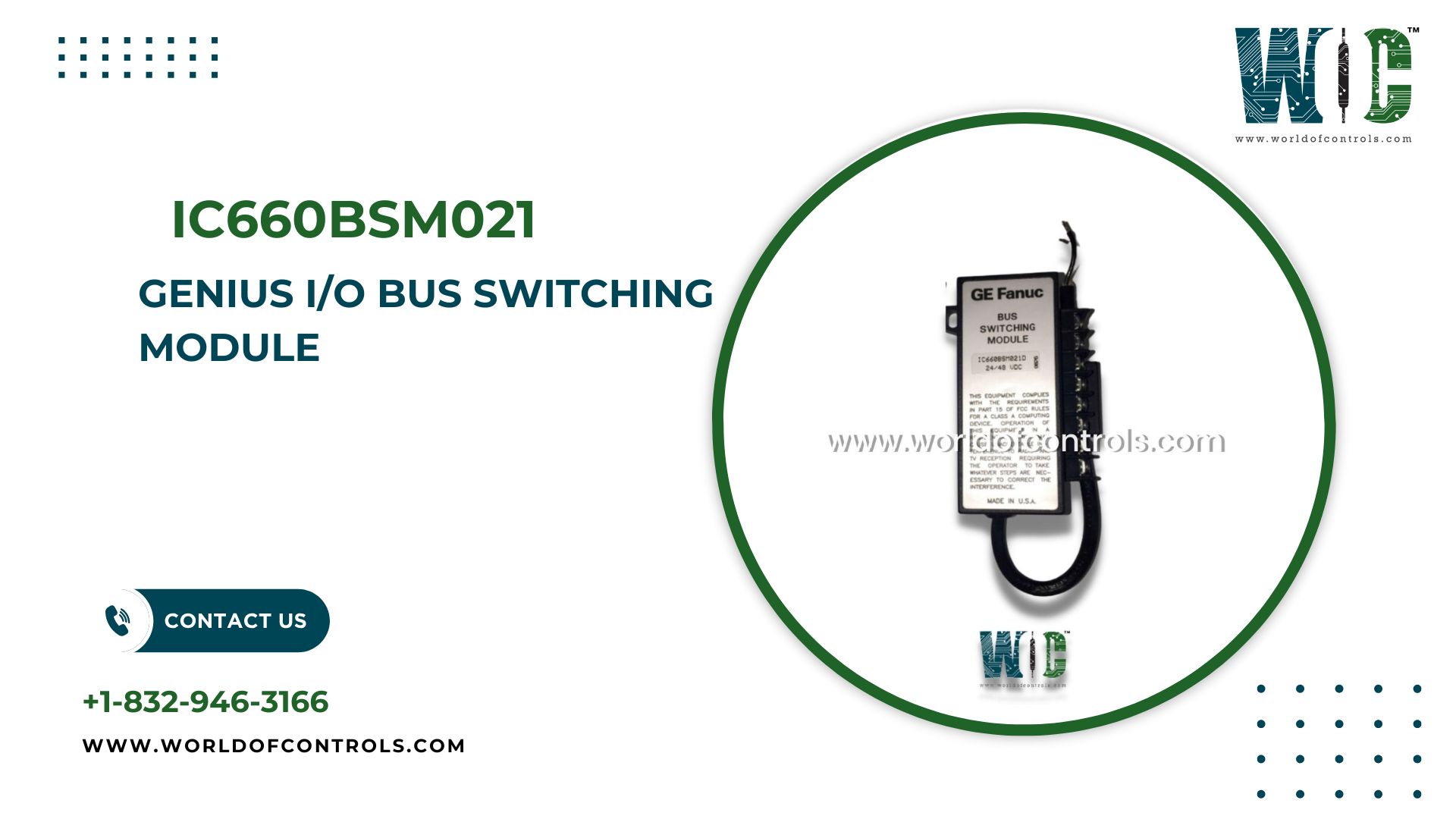
In modern industrial automation systems, efficient communication and data handling are crucial for seamless operations. Bus switching modules play a vital role in ensuring these systems run effectively by facilitating the connection between various I/O devices and the control system. One such device that stands out is the Genius I/O Bus Switching Module, which helps enhance the performance, reliability, and flexibility of automation networks.
Functionality of Bus Switching Modules
A bus switching module primarily manages the flow of data between multiple input/output (I/O) devices and the central controller within an automation system. By providing an efficient communication link, it allows for the proper exchange of data in real-time. This capability is essential in industrial settings where large amounts of data from sensors, actuators, and other devices need to be processed and acted upon promptly to ensure optimal system performance.
The Genius I/O Bus Switching Module offers advanced features that simplify the overall control of distributed I/O systems. It enables a seamless connection between different field devices and the system’s central processor, reducing the complexity of wiring and minimizing the need for manual intervention. This ensures greater operational efficiency, improved troubleshooting, and minimal downtime.
Advantages in Industrial Automation
- Increased Flexibility and Scalability
One of the significant advantages of a bus switching module is its ability to expand and adapt to changing industrial needs. As production systems grow or evolve, additional I/O modules can be integrated into the network with ease. This scalability ensures that the automation system can grow in line with the demands of the facility, without requiring a complete overhaul of the control infrastructure. - Enhanced Data Communication
The role of efficient data communication cannot be overstated in industrial automation. The Genius I/O Bus Switching Module ensures smooth, reliable, and fast data transmission between devices and controllers, making real-time monitoring and control possible. This improves system responsiveness, which is crucial in maintaining productivity and safety. - Improved System Reliability
Reliability is a cornerstone of industrial automation, and bus switching modules contribute significantly to this aspect. By reducing wiring complexity and providing fault tolerance, they ensure the system operates smoothly even under challenging conditions. With a bus switching module in place, communication failures are minimized, leading to greater system uptime and operational continuity. - Simplified Maintenance and Troubleshooting
The modular design of bus switching systems simplifies maintenance tasks. With fewer cables and direct connections, identifying and resolving issues becomes faster and more efficient. Operators and engineers can quickly diagnose faults, replace faulty modules, and get the system back online with minimal disruption.
Conclusion
Bus switching modules like the Genius I/O Bus Switching Module are pivotal to the success of modern industrial automation systems. By enhancing flexibility, improving data communication, boosting system reliability, and simplifying maintenance, they provide the foundation for efficient, scalable, and resilient automation networks. As industries continue to adopt more sophisticated technologies, the role of bus switching modules in optimizing performance and reducing downtime will only grow more significant.





Leave a Reply